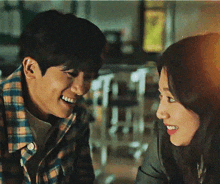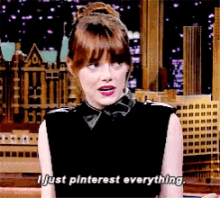To Kill a Mockingbird by Harper Lee, 1984 by George Orwell, and The Catcher in the Rye by J.D. Salinger are all beloved contemporary classic novels that teach us valuable life lessons and are known as literary masterpieces. These books have also be frequent victims of book bans and censors around the world.
This begs the question — why exactly are books banned, what impact does this have on people, and are book bans ever justified?

Image Credit: Susan Q Yin from Unsplash
Let us slide into your dms 🥰
Get notified of top trending articles like this one every week! (we won't spam you)Reasons for Book Banning
There are numerous reasons why schools, governments, libraries, and other organisations may choose to ban a book. Particularly in the United States, many of these bans stem from parents being worried that their children will be exposed to inappropriate content.
Some banned books, including Sarah J. Mass' A Court of Thorns and Roses series, contain graphic sexual content that parents disapprove of. Similarly, The Hunger Games by Suzanne Collins was banned in some libraries across the UK due to graphic violence and offensive language.
However, these books also provide insightful messages about mental health, social class, and the dangers of authoritarian regimes. Ultimately, the banning of books due to inappropriate content is problematic since these books still have important themes and children can often access similar (if not more unsuitable) content online.

Image Credit: Ajay Suresh from Wikimedia Commons
On the other hand, other reasons for banning books are more overtly problematic. In many American schools, parents have pushed for books to be banned due to messages they don't like, such as the themes of LGBTQIA+ inclusion in Raina Telgemeier's Drama and that of racism in The Hate U Give by Angie Thomas. However, this systemic weeding out of themes that threaten the majority removes diverse perspectives from literature.

Take the Quiz: What K-Drama Character Are You The Most Like?
Take this quiz to find out which K-Drama Character you're like the most!
Impacts of Book Banning
Arguably the most significant and worst impact of book banning is that it creates an increasingly sheltered, homogenised worldview amongst readers. Given that the majority of these bans occur in schools, young people who are still developing their ideas about the world have an incredibly miniscule array of opinions with these book bans.
The lack of exposure to different identities such as the LGBTQIA+ community in Maia Kobabe's Gender Queer and females of African-American descent in The Color Purple by Alice Walker raises a generation of children with a lack of empathy for others and tolerance, let alone acceptance, for people different to themselves.
Banning books also silences diverse perspectives. 59% of books banned in the United States last year were either children's books with diverse characters or non-fiction books on social movements (The Conversation, 2024), which reduces peoples' exposure to varied opinions. These bans also disproportionately impact female authors of colour — they comprise less than 5% of all American authors but 25% of censored books! This gravely limits the perspectives available to readers and unfairly hinders marginalised communities from expressing themselves.

Image Credit: Aaron Burden from Unsplash
An often disregarded impact of book censorship is its cost. Public librarians' salaries come from taxpayer money, so when more people need to be hired to review contentious titles, that's far more money shelled out by everyday citizens. In Texas alone, in 2023, 1470 titles were challenged, costing taxpayers around $3.6 million USD!
Potential Justifications
One of the primary justifications for banning books, particularly in schools and public libraries, is protecting children from inappropriate content. However, there are ways to shield young people from this content without these bans. For example, Brett Ellis' novel American Psycho has been banned around the globe due to graphic violent and sexual content.
But in Australia, this book is only displayed in public places wrapped in plastic film and with an 18+ warning. This avoids an outright ban while still ensuring children are not exposed to this content, and could be implemented across other countries.
Problematic or controversial themes are yet another common reason why people justify the censorship of books. For instance, the inclusion of political or religious messages in novels such as The Da Vinci Code by Dan Brown has led to it being banned in numerous institutions. Some places go as far as to ban books with mentions of alcohol, drugs, abuse, and other triggering topics. This could be worked around through trigger warnings at the start of the book, such as in Rebecca Yarros' Fourth Wing.

Image Credit: Unknown Author from Wikimedia Commons
Conclusion
Ultimately, book censorship causes severe under-representations of marginalised communities, costs everyday people money and knowledge, and impedes on authors' right to free speech. There are many ways to still protect children from inappropriate content in literature that do not involve them being outright banned from schools and libraries that would be much better for the literary community.
No one person or organisation should have the authority to decide what we get to read — it must be everyone's own choice, and book banning grants this unjust ability to many institutions. If we want a world with free expression, then we need to ensure that book censorship no longer occurs.












